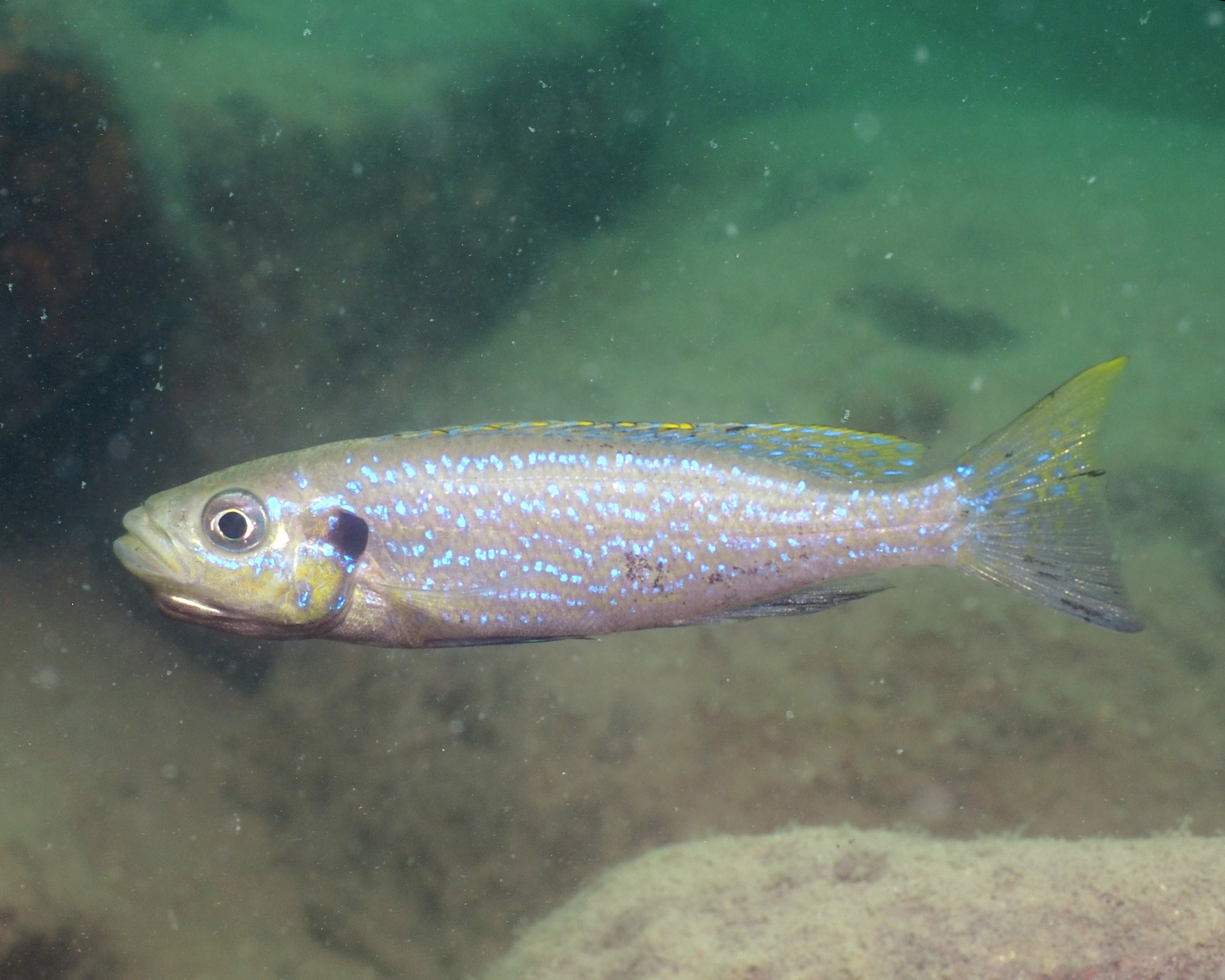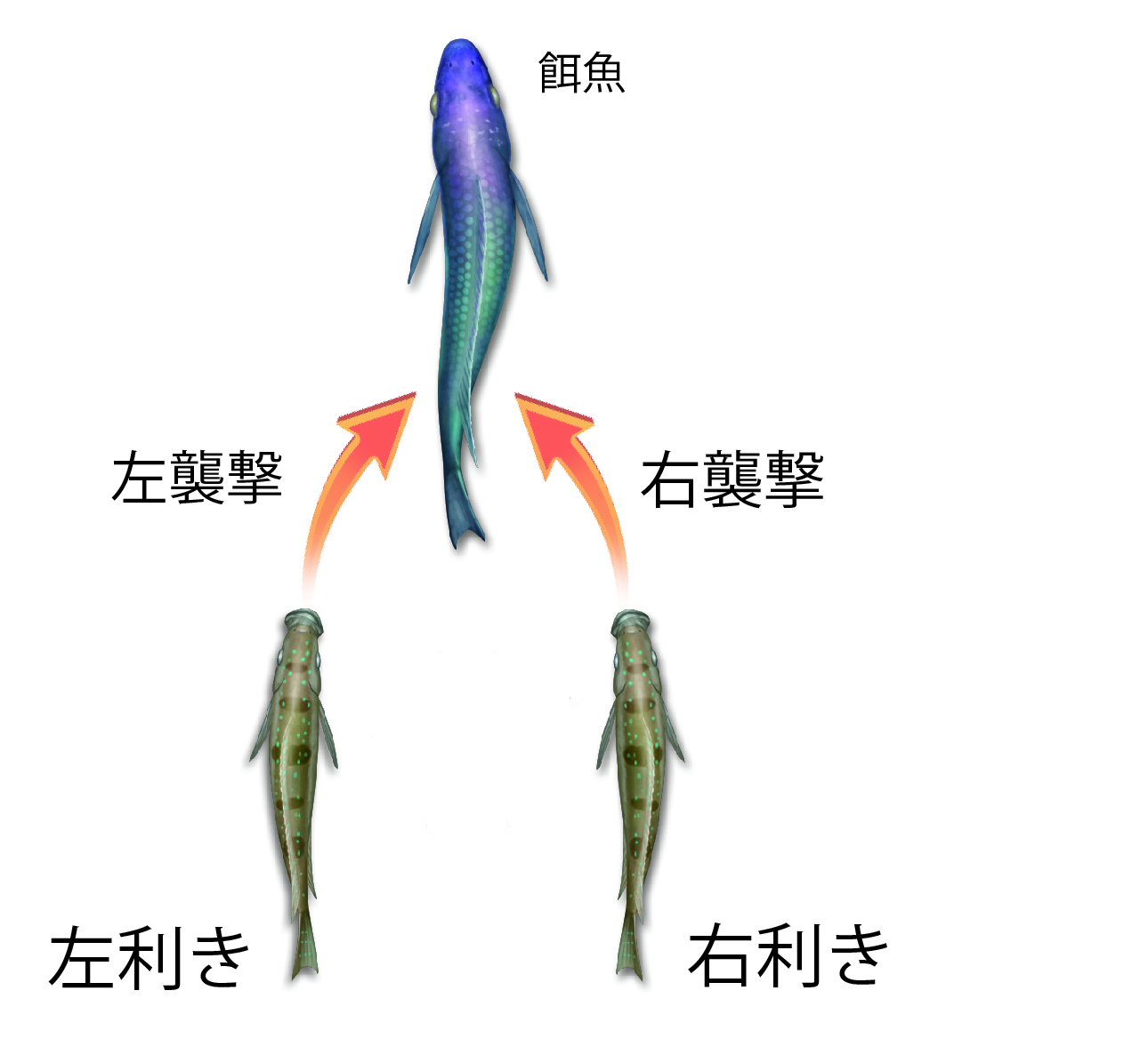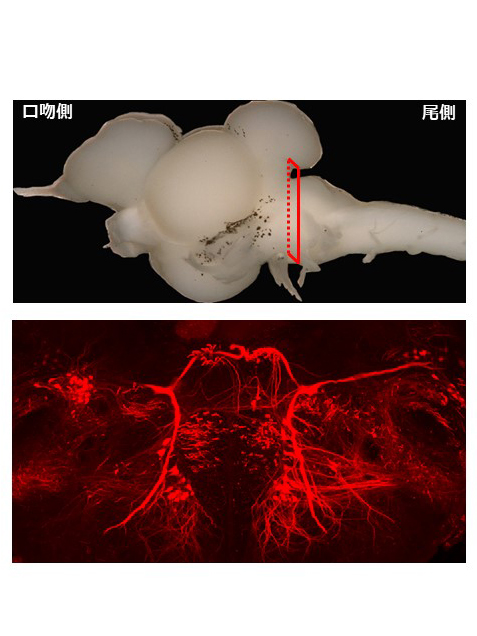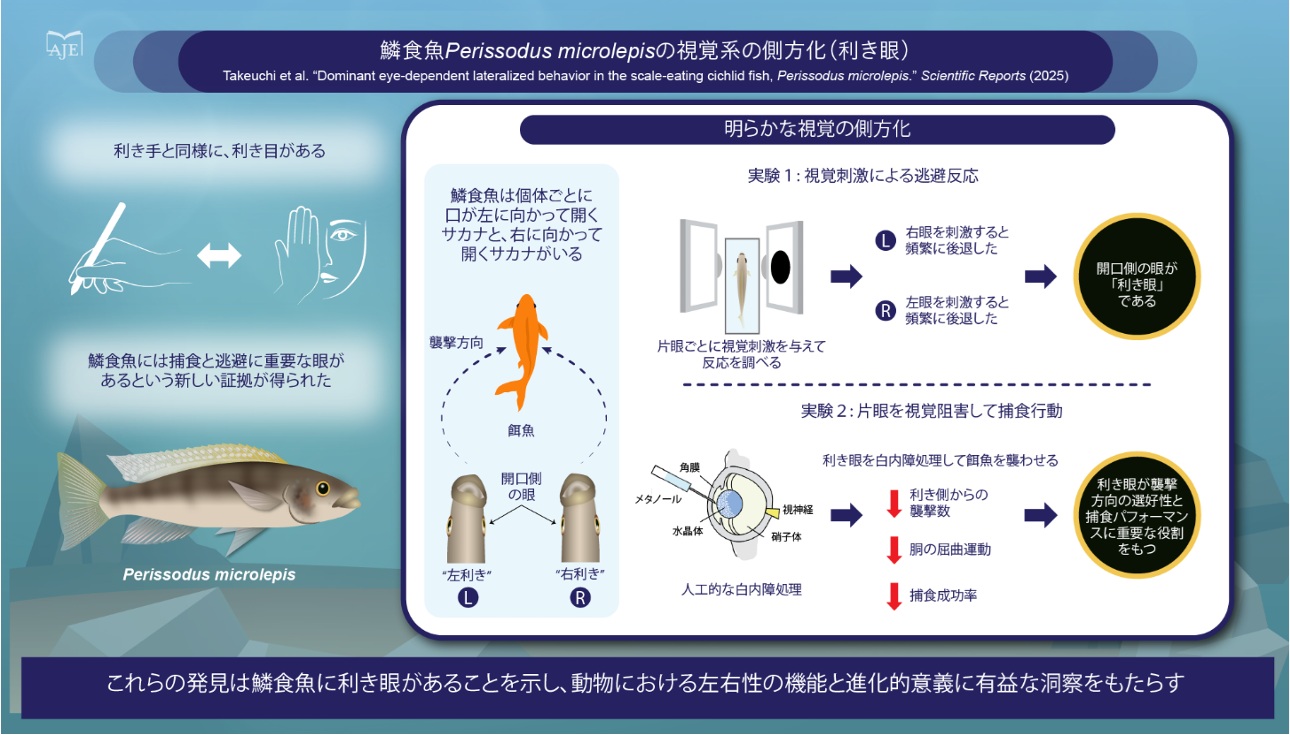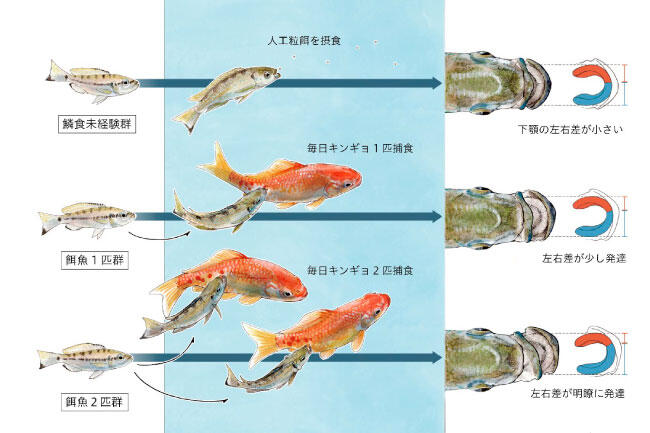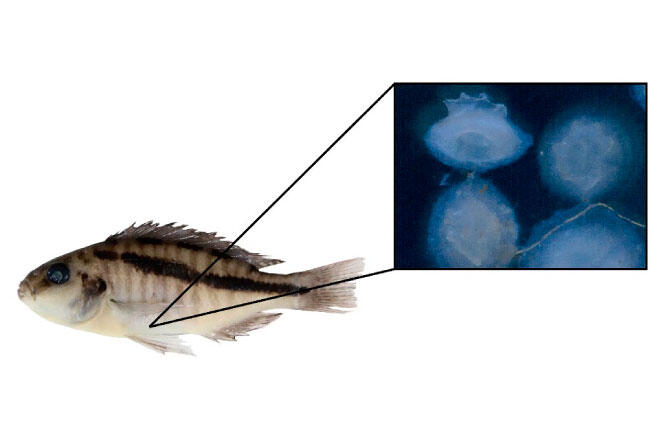TAKEUCHI Yuichi
Associate Professor
Identifying adaptive changes in the brain
Department of Biological Sciences, Behavioral Neurobiology

| Theme | Neural mechanisms underlying selection: mechanisms governing righty and lefty |
| Field | Neuroethology, Behavioral ecology, Neuroecology, Neuroscience, Genomics |
| Keyword | Laterality, Intraspecific polymorphism, Learning, Neural circuits, Evolution, Gene expression |
Introduction of Research
Righty and lefty, as typified by the dominant hand-use in humans, are actually phenomena found in various animals. It is believed that having a dominant hand maximizes locomotor ability and provides an advantage for survival. However, the differences in the nervous systems between righty and lefty, the developmental process of dominance, what genes and molecules regulate dominance, and when it was established evolutionarily still remain essential mysteries. Using African scale-eating cichlids, which are known for their pronounced handedness, I am investigating the mechanisms governing laterality from multiple approaches, including neuroscience, genomics, behavior, ecology, and evolution.
Representative Achievements
Takeuchi Y., Higuchi Y., Watanabe T., Oda Y., Sci. Rep. 15:24725. (2025)
Marubayashi N., Yasugi M., Takeuchi Y. Evolution. qpaf131. (2025)
Takeuchi Y., Hata H., Sasaki M., Mvula A., Mizuhara S., Rusuwa B., Maruyama A. Sci. Rep. 14:19300. (2024)
Takeuchi Y. Zool. Sci. 40(2):160-167 (2023).
Takeuchi Y., Higuchi Y., Ikeya K., Tagami M., Oda Y. Sci. Rep. 12: 723. (2022)

Related industries
| Academic degree | Ph.D. |
| Self Introduction | I am from Ehime Prefecture. I conduct research in a wide range of sites, from fieldwork to laboratories. My hobbies are visiting aquariums and watching baseball games. |
| Academic background | 2002 B. S., Faculty of Science, Yokohama City University 2004 M. S., Graduate School of Science, Kyoto University 2008 Ph.D., Graduate School of Science, Kyoto University 2010 Japan Society for the Promotion of Science Post-Doctoral Research Fellow (SPD: Biology) 2013 Assistant Professor, Graduate School of Medicine, University of Toyama 2023- Associate Professor, Faculty of Science, Hokkaido University |
| Affiliated academic society | Zoological Society of Japan, The Ecological Society of Japan, The Japan Neuroscience Society, Japan Ethological Society |
| Room address | Science Bulding #5, 5-913 |


